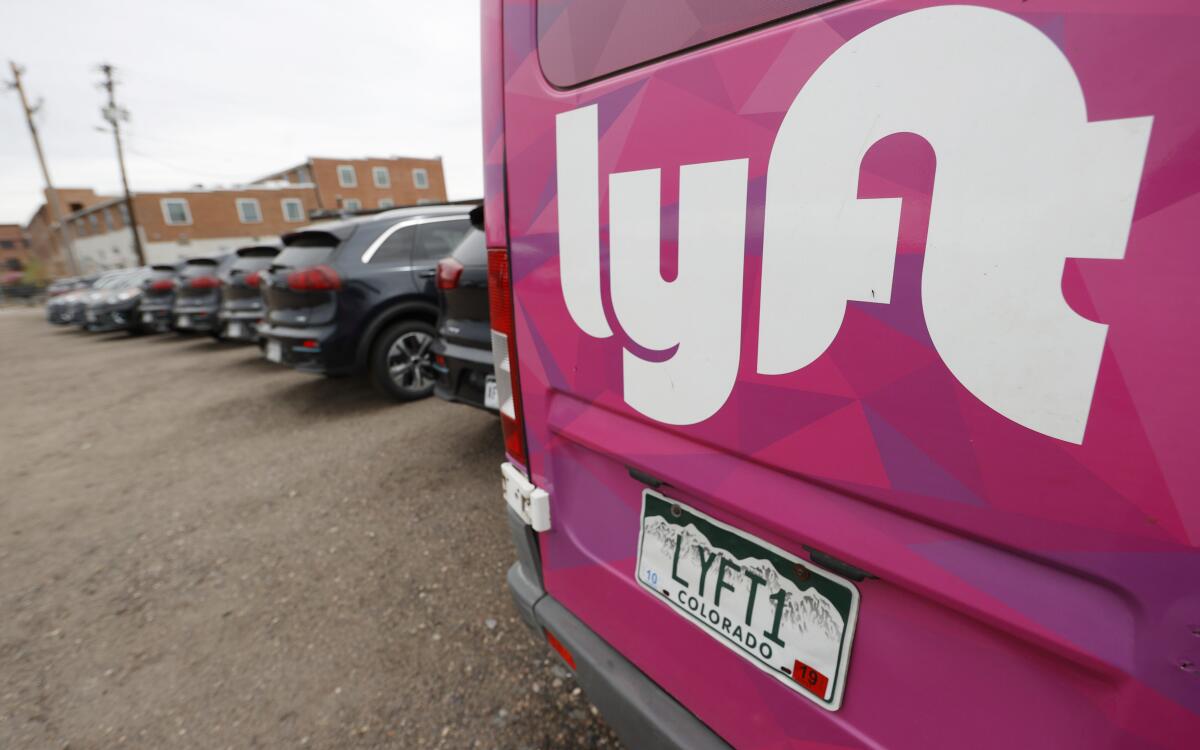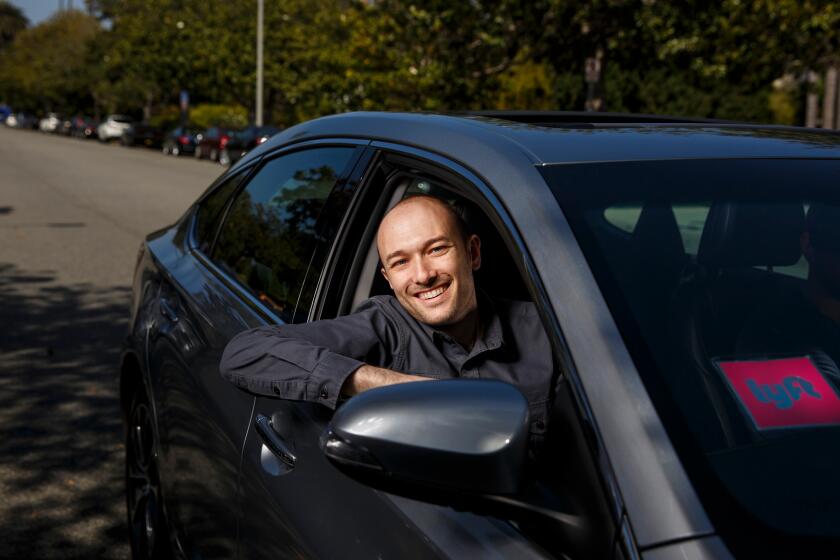Lyft to sell autonomous-driving unit in $550-million Toyota deal

- Share via
Lyft Inc. has agreed to sell its self-driving division to a subsidiary of Toyota Motor Corp., joining Uber Technologies Inc. in stepping back from the costly driverless vehicle research once thought to be on the verge of revolutionizing the ride-hailing industry.
The deal is worth $550 million and will enable Lyft to turn an adjusted profit in the third quarter of this year, the company said Monday. Previously, Lyft was targeting profitability by the end of the year. The company estimates that selling the division will save it $100 million in operating expenses annually.
Lyft shares gained about 2% in extended trading after closing at $63.06 in New York. The stock has jumped 28% this year.
“Assuming the transaction closes within the expected time frame and the COVID recovery continues, we are confident that we can achieve Adjusted EBITDA profitability in the third quarter of this year,” Lyft co-founder and President John Zimmer said in a prepared statement announcing the deal, which is expected to close during the third quarter.
Lyft will sell the unit, called Level 5, to Woven Planet Holdings Inc., an extension of Toyota’s research division with a mandate to advance self-driving car technology. The deal is structured to start with a $200-million payout, followed by $350 million in additional payments over five years.
The sale comes as Lyft’s ride-hailing demand is rebounding after the pandemic slammed revenue by keeping would-be riders homebound. The lockdowns were particularly hard on Lyft, which operates only in North America and, unlike its larger rival Uber, does not have businesses such as food delivery to offset ride-hailing losses.
But even as the ride-hailing industry shows signs of recovery, expectations for self-driving car development have been humbled. Long hailed as a technology that would be soon be ready to commercialize broadly and cheaply, its development is costing more and taking longer to safely deploy than initially expected.
By selling its autonomous driving unit, Lyft follows Uber, which sold its self-driving group to Aurora Innovation Inc. late last year. Uber has been offloading a variety of pricey side projects as it focuses on turning a profit by the end of 2021.
Lyft’s self-driving division will continue operating in Palo Alto, with all 300 employees now joining Woven Planet. Jody Kelman, Lyft’s director of product and program management for the self-driving platform, will stay at Lyft, joining its two dozen or so product managers and engineers in San Francisco focused on making the company’s platform accessible and ready to work with all self-driving cars.
After the addition of the Lyft staffers, the group at Toyota’s Woven Planet will consist of about 1,200 employees. “This acquisition marks the first in a coordinated strategy to consolidate leading technologies and talent to help realize this vision,” George Kellerman, head of investments and acquisitions for Woven Planet, said in a statement.
Lyft also said Monday that it had reached agreements with Woven Planet to share data that could help further the automated vehicles the unit is aiming to develop. Along with Lyft’s engineers and data scientists, Woven Planet will get access to mapping, route and other data from Lyft, as well as information from the high-powered sensors that are on Lyft’s fleet of more than 10,000 cars that it rents to drivers.
In a statement Monday, Lyft Chief Executive Logan Green called the deal a “major step forward for autonomous vehicle technology.”
Lyft has logged more than 100,000 paid autonomous trips on its platform, mostly in Las Vegas through its partnership with Motional, a venture backed by Hyundai Motor Group. The company said the deal with Woven is nonexclusive and that it remains committed to existing partners including Google’s Waymo, and is on track to hit a 2023 goal of allowing customers to use its app to hail driverless cars.
More to Read
Inside the business of entertainment
The Wide Shot brings you news, analysis and insights on everything from streaming wars to production — and what it all means for the future.
You may occasionally receive promotional content from the Los Angeles Times.











